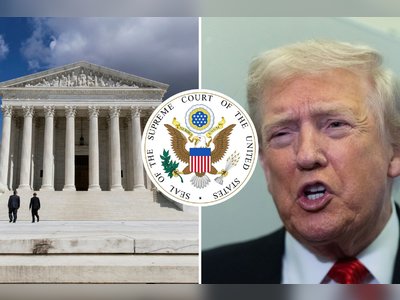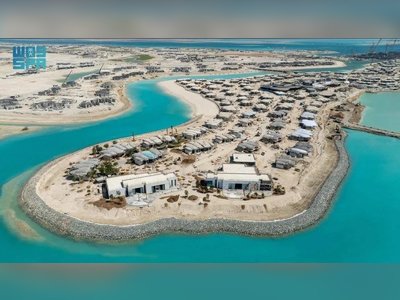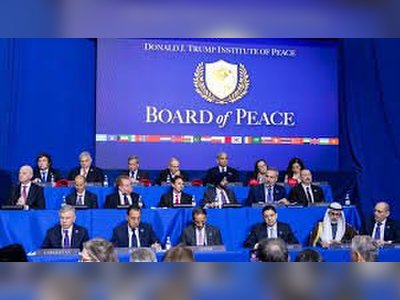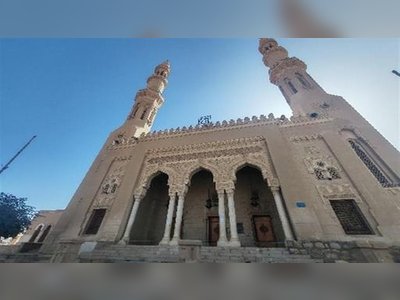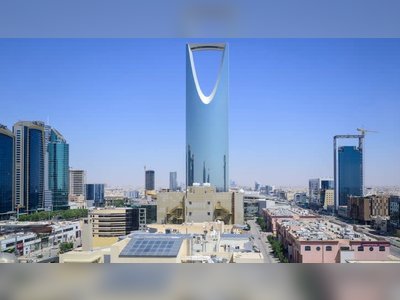
IAEA warns of ‘fatal blow’ to nuclear deal as Iran cuts cameras
Iran has started to remove 27 surveillance cameras from nuclear sites in the country, according to the the head of the United Nations nuclear watchdog, who warned that the move could be a near-fatal blow to chances of reviving the 2015 Iran nuclear deal
Rafael Grossi, the director general of the International Atomic Energy Agency (IAEA), made the comments at a suddenly called news conference in Vienna on Thursday, standing next to an example of the cameras installed across Iran.
Grossi said the move poses a “serious challenge” to its efforts, warning that in three to four weeks, it would be unable to maintain a “continuity of knowledge” about Iran’s programme.
“This would be a fatal blow” to negotiations over Iran’s tattered nuclear deal with world powers, Grossi said. “When we lose this, then it’s anybody’s guess,” he added.
There was no immediate comment from Iran on Grossi’s remarks.
Grossi said that would leave “40 something” cameras still in Iran. The sites that would see cameras removed include its underground Natanz nuclear enrichment facility, as well as its facility in Isfahan, Grossi said.
“We are in a very tense situation with the negotiations over the [nuclear deal] at a low ebb,” Grossi added. “Now we are adding this to the picture; as you can see it’s not a very nice one.”
On Wednesday, Iran said it shut off two devices the IAEA uses to monitor enrichment at Natanz, in anticipation of the watchdog’s adoption of the Western-drafted censure motion.
Grossi acknowledged that, saying that among the devices being removed was a crucial metre that tracks how high Iran is enriching uranium at Natanz.
Iranian officials had warned of retaliation if the IAEA’s 35-nation board of governors passed a resolution drafted by the United States, France, Britain and Germany criticising Tehran for its continued failure to explain uranium traces found at undeclared sites.
The resolution, the first to criticise Iran since June 2020, was passed by a large majority late on Thursday. It was approved by 30 of the 35 members of the IAEA board of governors, with only Russia and China voting against it. Tehran condemned the censure motion as “unconstructive”.
Intensifying developments
Earlier on Thursday, the IAEA said Grossi told members that Iran informed the agency that it planned to install two new cascades of the IR-6 at Natanz. A cascade is a series of centrifuges hooked together to rapidly spin uranium gas to enrich it.
An IR-6 centrifuge spins uranium 10 times as fast as the first-generation centrifuges that Iran was once limited to under its 2015 nuclear deal with world powers.
As of February, Iran had already been spinning a cascade of IR-6s at its underground facility at Fordo, according to the IAEA.
At Natanz, located some 200km (125 miles) south of the capital, Tehran, Iran earlier said it planned to install one cascade of IR-6s.
The IAEA said it “verified” the ongoing installation of that cascade on Monday, while the newly promised two new cascades had yet to begin.
Iran and world powers agreed in 2015 to the nuclear deal, which saw Tehran drastically limit its enrichment of uranium in exchange for the lifting of economic sanctions.
In 2018, then-President Donald Trump unilaterally withdrew the US from the accord, raising tensions across the wider Middle East and sparking a series of attacks and incidents.
Talks in Vienna over Iran’s tattered nuclear deal have been stalled since April. Since the deal’s collapse, Iran runs advanced centrifuges and has a rapidly growing stockpile of enriched uranium.
Nonproliferation experts warn Iran has enriched enough up to 60 percent purity — a short technical step from weapons-grade levels of 90 percent — to make one nuclear weapon should it decide to do so.
Iran insists its programme is for peaceful purposes, though UN experts and Western intelligence agencies say Iran had an organised military nuclear programme through 2003.
Building a nuclear bomb would still take Iran more time if it pursued a weapon, analysts say, though they warn Tehran’s advances make the programme more dangerous.
Israel has threatened in the past that it would carry out a preemptive strike to stop Iran — and is already suspected by Tehran in a series of killings targeting Iranian officials.
Iran has been holding footage from IAEA surveillance cameras since February 2021 as a pressure tactic to restore the atomic accord.
